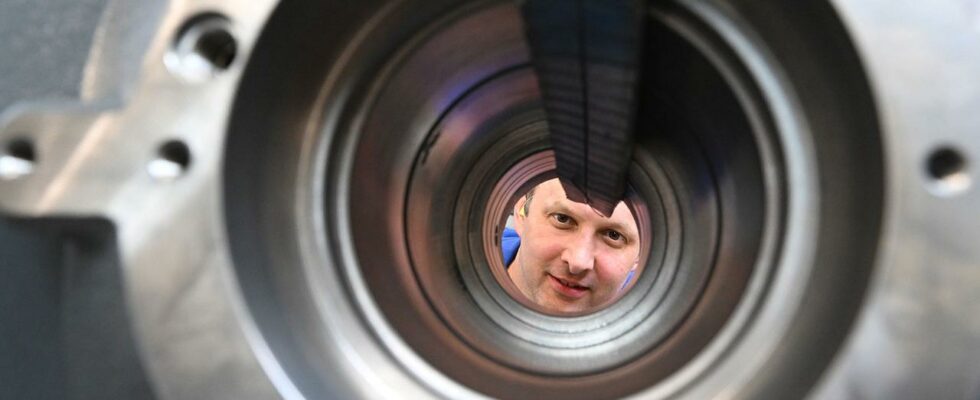Germany’s economy is and remains a problem child. Recently, the mood in the executive suites had improved somewhat. But the ifo index shows that this is over for now. There are, however, glimmers of hope in individual sectors.
The mood in the German economy remains unchanged. The ifo business climate surprisingly stood still in May. The value remained at the April value of 89.3 points, as the Munich-based ifo Institute announced today in its survey of around 9,000 managers.
The barometer had previously climbed three times in a row. Experts had expected an increase this time too. Companies assessed their current business situation as worse than recently, but their prospects for the coming months were more positive. “The German economy is gradually working its way out of the crisis,” said ifo President Clemens Fuest.
More orders from service providers
The order situation for service providers improved in May, says Klaus Wohlrabe, head of the ifo surveys. In industry, the decline in orders has at least lost some of its momentum. “We are not yet at the point of optimism here, but hope is slowly returning,” says Wohlrabe. “But the upturn remains a delicate plant.”
Energy-intensive industries, including chemicals, paper and glassware, are seeing light at the end of the tunnel. These suffered particularly from the sharp rise in energy costs after the start of the Russian war against Ukraine. Retail is seeing a slight upturn – “but there is still room for improvement,” said the ifo survey chief. “Consumers are still holding back.” According to Wohlrabe, the somewhat gloomy situation of service providers is preventing a further increase in the business climate.
Disappointment or confidence?
“The stagnation of the ifo business climate after three consecutive increases is a disappointment,” says Jörg Krämer, chief economist at Commerzbank, commenting on the figures. The German economy is unlikely to grow significantly in the second quarter. “We do not expect a more sustainable recovery in gross domestic product until the middle of the year, although the upward movement should be moderate because the federal government is not decisively tackling the long-term erosion of the quality of the location.”
The chief economist of the state development bank KfW, Fritzi Köhler-Geib, was somewhat more optimistic: “The exceptionally gloomy mood in German companies just a few months ago is gradually giving way to a little more confidence, albeit painfully slowly and interrupted by setbacks like now in May.” From Köhler-Geib’s point of view, the business climate is at least holding at a significantly higher level than at the beginning of the year. “All in all, the economic downturn seems to have largely passed.”
Just avoided recession
The economy narrowly avoided a recession at the beginning of the year. Between January and March it grew by 0.2 percent, the strongest growth in a year. Germany was thus slightly below the EU average of 0.3 percent. The Bundesbank and other experts expect the recovery to continue in the current second quarter.
Growth in Europe’s largest economy at the beginning of the year was driven by increased construction investments – thanks to mild weather – and an increase in exports. Private consumer spending, an important pillar of the economy, fell by 0.4 percent compared to the previous quarter, adjusted for price, seasonal and calendar effects, despite the declining inflation. According to the information, consumers cut back on food and clothing, among other things.
Hoping for private consumption
Nevertheless, hopes for the coming months rest on private consumption in view of increased wages and weaker inflation. Lower inflation rates can stimulate consumer spending.
However, according to a survey of more than 24,000 companies from all sectors and regions, the German Chamber of Industry and Commerce (DIHK) expects only stagnation.

